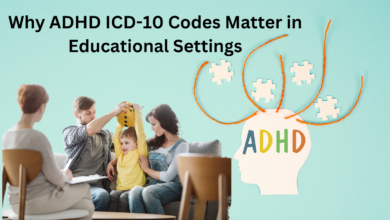What Ages are Key Stage 1 Students: Complete Guide

Key Stage 1 is a crucial period in a child’s educational journey, laying the foundation for future learning and development. In the United Kingdom, the education system is divided into various stages, each tailored to specific age groups and learning objectives. Key Stage 1 encompasses the early years of formal education, focusing on children aged 5 to 7 years old.
Understanding the Educational Stages in the UK
Before delving into the specifics of Key Stage 1, it’s essential to understand the structure of the UK education system. The system is divided into several key stages, including the Early Years Foundation Stage (EYFS), Key Stage 1, Key Stage 2, Key Stage 3, Key Stage 4, and post-16 education.
Overview of Key Stage 1
Key Stage 1 marks the beginning of a child’s primary education journey. It typically covers two academic years, starting from Year 1 (age 5-6) and continuing to Year 2 (age 6-7). During this stage, children undergo significant cognitive, social, and emotional development, making it a critical period in their educational development.
Defining the Age Range
The age range for Key Stage 1 is generally between 5 to 7 years old. However, it’s essential to note that children may start school at different ages depending on their birthdates and local educational policies. Nonetheless, the curriculum and learning objectives remain consistent across this stage, focusing on foundational skills in literacy, numeracy, and other areas of learning.
Typical Ages of Children in Key Stage 1
In Year 1 of Key Stage 1, children are typically around 5 to 6 years old, marking their first year of formal schooling. During this time, they begin to adapt to the school environment, develop basic literacy and numeracy skills, and explore various subjects through a play-based approach.
As children progress into Year 2, they are around 6 to 7 years old, building upon the skills and knowledge acquired in Year 1. This year focuses on further consolidating literacy and numeracy skills, as well as introducing more complex concepts across the curriculum.
Importance of Key Stage 1
Key Stage 1 plays a crucial role in laying the foundation for future academic success. It provides children with essential skills and knowledge that form the basis for their learning journey. Additionally, it helps foster a love for learning, curiosity, and creativity, setting the stage for lifelong learning habits.
Foundational Learning and Development
During Key Stage 1, children develop fundamental literacy and numeracy skills, including reading, writing, and basic arithmetic. They also explore other areas of learning, such as science, history, geography, art, and physical education, which contribute to their holistic development.
Transition from Early Years to Formal Education
Key Stage 1 represents a significant transition for children, as they move from the play-based learning environment of early years to more structured and formal education. This transition can be both exciting and challenging for young learners, requiring support from educators, parents, and caregivers to ensure a smooth adjustment.
Curriculum in Key Stage 1
The curriculum in Key Stage 1 is broad and balanced, encompassing various subjects and areas of learning. The primary focus is on developing literacy and numeracy skills, but it also includes science, history, geography, art, design and technology, music, and physical education.
Subjects and Areas Covered
In addition to literacy and numeracy, the Key Stage 1 curriculum covers a wide range of subjects to provide children with a well-rounded education. This includes:
- English: Reading, writing, speaking, and listening skills.
- Mathematics: Number, shape, space, and measurement concepts.
- Science: Introduction to scientific inquiry and exploration.
- History: Understanding of the past and historical events.
- Geography: Exploration of the world and its physical features.
- Art and Design: Creative expression through various mediums.
- Music: Appreciation of music and basic musical skills.
- Physical Education: Development of physical skills and fitness.
Key Learning Objectives
Throughout Key Stage 1, educators focus on achieving key learning objectives that align with the National Curriculum Key Stage 1 framework. These objectives outline the knowledge, skills, and understanding that children are expected to acquire by the end of Year 2.
Assessment and Evaluation
Assessment plays a vital role in monitoring children’s progress and identifying areas for development. In Key Stage 1, assessment methods include both formative and summative assessments, designed to provide ongoing feedback and measure achievement against learning objectives.
Methods Used to Assess Progress
Formative assessment involves continuous monitoring of children’s learning through observation, questioning, and feedback. Teachers use a range of strategies, such as quizzes, informal observations, and class discussions, to gauge understanding and identify areas for improvement.
Summative assessment occurs at the end of each academic year and may include standardized tests, teacher assessments, and portfolios of children’s work. These assessments help track progress over time and inform future teaching and learning strategies.
Importance of Formative Assessment
Formative assessment is particularly important in Key Stage 1, as it allows teachers to adapt their teaching approaches based on individual learning needs. By providing timely feedback and support, educators can ensure that every child receives the necessary guidance to succeed.
Teaching Approaches
Effective teaching in Key Stage 1 requires a variety of approaches that cater to the diverse needs and learning styles of young children. While structured lessons and activities are essential, it’s also crucial to incorporate play-based learning, exploration, and hands-on experiences.
Strategies for Engaging Young Learners
Engaging young learners requires creativity, patience, and flexibility. Teachers may use storytelling, games, interactive activities, and multimedia resources to capture children’s interest and make learning enjoyable and meaningful.
Importance of Play-Based Learning
Play is a natural and essential part of childhood development, promoting creativity, imagination, social skills, and problem-solving abilities. Incorporating play-based learning activities into the curriculum allows children to explore, experiment, and make sense of the world around them.
Challenges and Solutions
While Key Stage 1 is a critical period for children’s learning and development, it also presents various challenges for educators, parents, and policymakers. These challenges may include:
- Meeting the diverse needs of learners with varying abilities and backgrounds.
- Addressing the pressures of standardized testing and academic performance.
- Providing adequate support and resources for teachers and schools.
Addressing Diverse Learning Needs
One of the primary challenges in Key Stage 1 is catering to the diverse learning needs of children. Some may require additional support or accommodations to thrive academically, while others may excel with more challenging tasks. It’s essential for educators to adopt inclusive teaching practices that accommodate all learners and provide appropriate scaffolding and differentiation.
Support for Teachers and Students
To address the challenges of Key Stage 1 effectively, it’s crucial to provide ongoing support and professional development opportunities for teachers. This may include training in curriculum implementation, assessment strategies, behavior management techniques, and special educational needs support. Additionally, collaboration between educators, parents, and external stakeholders can help create a supportive learning environment for all children.
Parental Involvement
Parents play a vital role in supporting their child’s education during Key Stage 1 and beyond. By actively engaging in their child’s learning journey, parents can reinforce classroom learning, provide encouragement and support, and foster a positive attitude towards education.
Role of Parents in Key Stage 1 Education
Parents can support their child’s education in various ways, such as:
- Establishing a daily routine for homework, reading, and study.
- Encouraging a love for reading by providing access to books and reading together.
- Communicating regularly with teachers to stay informed about their child’s progress and any areas of concern.
- Creating a conducive learning environment at home that minimises distractions and promotes concentration.
- Engaging in educational activities and outings that complement classroom learning.
Tips for Supporting Children at Home
- Set aside dedicated time each day for reading, homework, and learning activities.
- Encourage curiosity and exploration by asking questions and fostering a sense of wonder.
- Provide positive reinforcement and praise for effort and progress, rather than focusing solely on outcomes.
- Be patient and supportive, recognising that every child learns at their own pace and in their own way.
- Seek assistance from teachers or educational professionals if you have concerns about your child’s progress or development.
Transition to Key Stage 2
As children approach the end of Key Stage 1, preparations begin for the transition to Key Stage 2. This transition marks a significant milestone in their educational journey, requiring careful planning and support to ensure a smooth adjustment.
Preparing Children for the Next Stage
To prepare children for Key Stage 2, educators focus on developing essential skills and competencies that will serve as a solid foundation for future learning. This may include building confidence, independence, and resilience, as well as reinforcing academic skills and knowledge.
Smooth Transition Strategies
Transition planning involves collaboration between Key Stage 1 and Key Stage 2 teachers, parents, and children to address any concerns or challenges proactively. Strategies may include:
- Providing opportunities for children to visit their new school and meet their future teachers.
- Familiarizing children with the routines, expectations, and learning environment of Key Stage 2.
- Offering transition workshops or support sessions to address any anxieties or questions children may have.
- Communicating regularly with parents to keep them informed about the transition process and how they can support their child at home.
Conclusion
Key Stage 1 plays a pivotal role in shaping children’s educational journey, providing them with essential skills, knowledge, and experiences that lay the foundation for future learning and development. By fostering a supportive and inclusive learning environment, educators, parents, and caregivers can help children thrive academically, socially, and emotionally during this critical stage.



